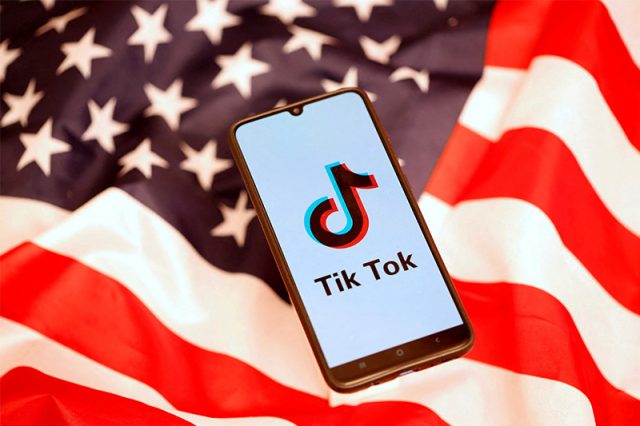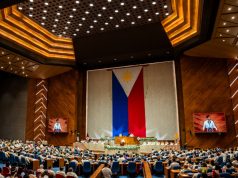
WASHINGTON— Montana Governor Greg Gianforte on Wednesday signed legislation to ban Chinese-owned TikTok from operating in the state to “protect Montanans” from alleged Chinese surveillance, making it the first U.S state to ban the popular short video app.
RELATED: Montana to become first US state to ban TikTok
Here is a detailed list of U.S. allegations against the company and its parent, Bytedance.
- TikTok management is beholden to the Chinese government
FBI Director Chris Wray said in November that TikTok poses a national security risk, adding that Chinese companies are required to essentially “do whatever the Chinese government wants them to in terms of sharing information or serving as a tool of the Chinese government.”
Members of Congress in March complained that the Chinese government has a “golden share” in ByteDance, giving it power over TikTok. TikTok has said “an entity affiliated with the Chinese government owns 1% of a ByteDance subsidiary, Douyin Information Service,” and says the holding “has no bearing on ByteDance’s global operations outside of China, including TikTok.”
- TikTok could be used to influence Americans
The FBI’s Wray has also said U.S. operations of TikTok raise national security concerns because the Chinese government could harness the video-sharing app to influence users or control their devices.
Risks include “the possibility that the Chinese government could use [TikTok] to control data collection on millions of users or control the recommendation algorithm, which could be used for influence operations,” Wray told U.S. lawmakers.
National Security Agency Director Paul Nakasone said in March he was worried about the data TikTok collects, the algorithm used to disperse information to users, and “the control of who has the algorithm.”
He asserted the TikTok platform could enable sweeping influence operations because TikTok could proactively influence users and could also “turn off the message.”
TikTok says it “does not permit any government to influence or change its recommendation model.”
- TikTok will hand American’s data over to Chinese government officials
Lawmakers have alleged that the Chinese government, under a 2017 National Intelligence law, can force ByteDance to share TikTok user data. TikTok argues that because it is incorporated in California and Delaware, it is subject to U.S. laws and regulations.
TikTok‘s chief executive has said the company has never, and would never, share U.S. user data with the Chinese government
- TikTok use harms children’s mental health
In March 2022 eight states, including California and Massachusetts, launched a probe into whether TikTok causes physical or mental health harm to young people and what the company knew about its role in those harms.
The investigation focuses on how TikTok boosts young user engagement, including allegedly increasing the duration of time spent on the platform and how often it is used.
TikTok says it has taken numerous steps “to help ensure that teens under 18 have a safe and enjoyable experience on the app, and many of these measures impose restrictions that don’t exist on comparable platforms.”
- TikTok spies on journalists
In December, ByteDance said some employees improperly accessed TikTok user data of two journalists. ByteDance employees accessed the data as part of an unsuccessful effort to investigate leaks of company information earlier this year, and were aiming to identify potential connections between two journalists, a former BuzzFeed reporter and a Financial Times reporter, and company employees.
A person briefed on the matter told Reuters that four ByteDance employees who were involved in the incident were fired, including two in China and two in the United States. Company officials said they were taking additional steps to protect user data.
—Reporting by Chris Sanders; Editing by Leslie Adler









